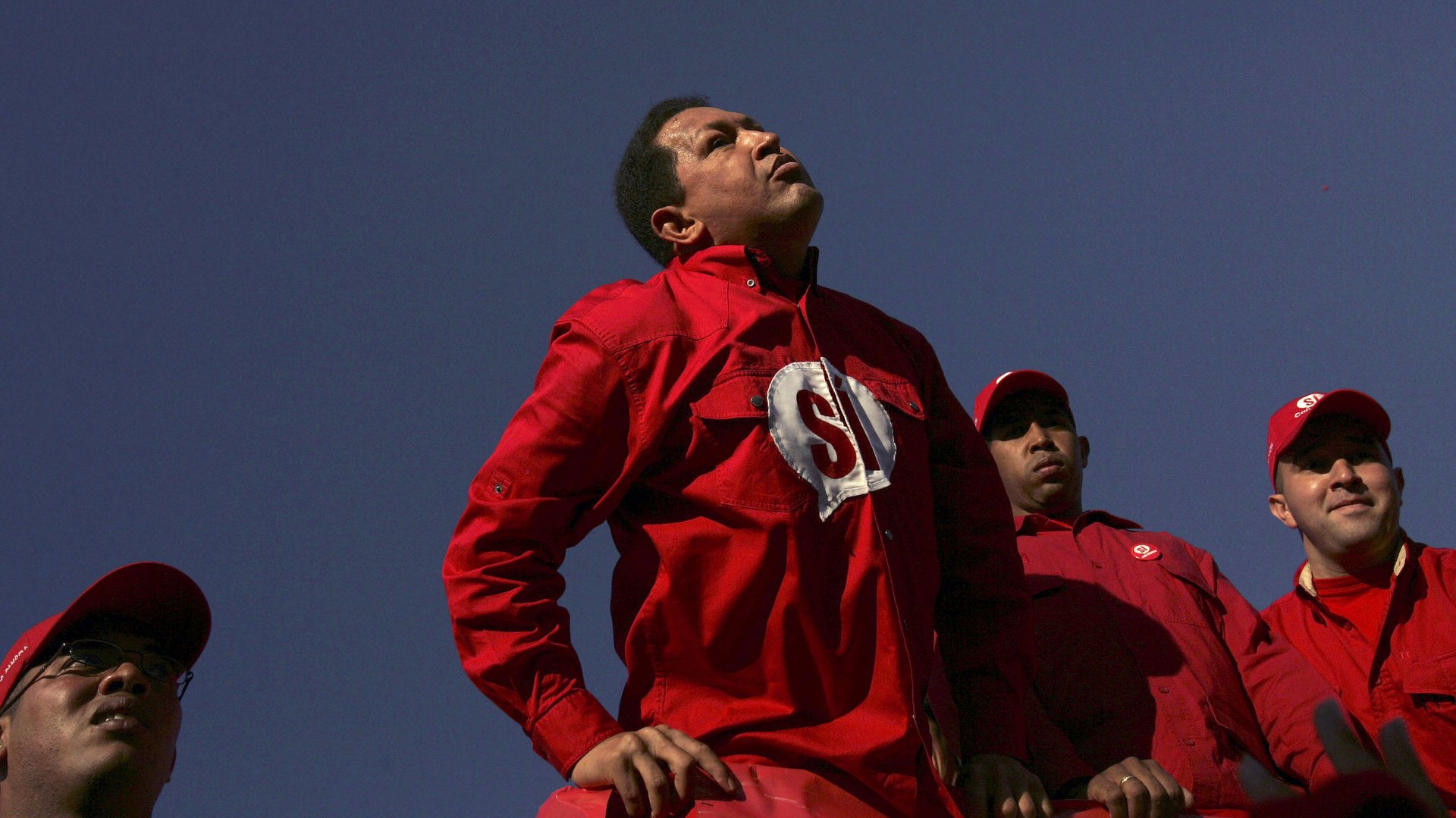Hugo Chávez is dead
Nicolás Maduro, Venezuela’s vice-president, has just reported the death of president Hugo Chávez this afternoon at 4.25 p.m, Caracas time. Earlier in the day he had given a speech lambasting the “enemies” of Venezuela whom he accused of poisoning the president, who died after a prolonged battle with cancer. He seemed to be preparing the people for the president’s death.


Nicolás Maduro, Venezuela’s vice-president, has just reported the death of president Hugo Chávez this afternoon at 4.25 p.m, Caracas time. Earlier in the day he had given a speech lambasting the “enemies” of Venezuela whom he accused of poisoning the president, who died after a prolonged battle with cancer. He seemed to be preparing the people for the president’s death.
Chávez was president for 14 years and was to have begun his fourth presidential term in January. He was flown to Cuba in December for his fourth cancer operation, but had not been seen in public since then, apart from one set of photos of him posing with his daughters, whose authenticity was disputed.
The armed forces seem to be supporting Maduro as Chávez’s interim successor until an election is held. Maduro was in rivalry with Diosdado Cabello, the president of the National Assembly. Constitutionally, Cabello may have had a claim on the interim presidency—a matter of some debate, but he was not thought to be the preferred choice of Chávez, nor of Cuba, which has a keen interest in maintaining influence over Venezuela. But the Venezuelan constitution has already proven itself elastic, and if the army does support him, Maduro’s hold on the office is pretty much assured. (However, the army is Cabello’s traditional power base, so that show of support may be temporary.)
The big question now is when an election will be held, and how clean it will be. Henrique Capriles, the governor of the state of Miranda, who lost to Chávez in October’s presidential election, might well defeat Maduro in a clean ballot. But will the Venezuelan authorities let that happen?
Background reading
Here is a selection of in-depth articles on Chávez’s life and legacy.
Death comes for El Comandante. Time, March 5. Tim Padgett surveys’s the president’s life.
Hugo Chavez, RIP: He Empowered the Poor and Gutted Venezuela. BusinessWeek, March 5. Moisés Naím looks back at the good and the (mostly) bad of the president’s legacy.
Don’t cry for me, Venezuela. The New York Review of Books, Oct. 2005. Alma Guillermoprieto on four books peeling apart Chávez’s personality and myth.
Fidel’s Heir. The New Yorker, June 2008. Jon Lee Anderson sums up the Venezuelan leader’s relationship with his Cuban mentor.
A strongman’s last stand. The Guardian, Oct. 2012. Rory Carroll depicts Venezuela on the eve of Chávez’s last presidential victory.
Slumlord. The New Yorker, Jan. 2013. Anderson again, looking at the country he leaves behind..
Chavismo After Chávez (registration required). Foreign Affairs, Jan. 2013. Javier Corrales on “the race to claim the mantle of Venezuela’s revolution” after Chávez is gone.
Now for the reckoning. The Economist, March 5. An overview by the magazine’s correspondent in Caracas.
Chávez’s Legacy (video). A discussion at London’s Frontline Club on Feb. 26, with the New Yorker’s Jon Lee Anderson, the Guardian’s Rory Carroll, political analyst Diego Moya-Ocampos, and Richard Lapper of the Financial Times.